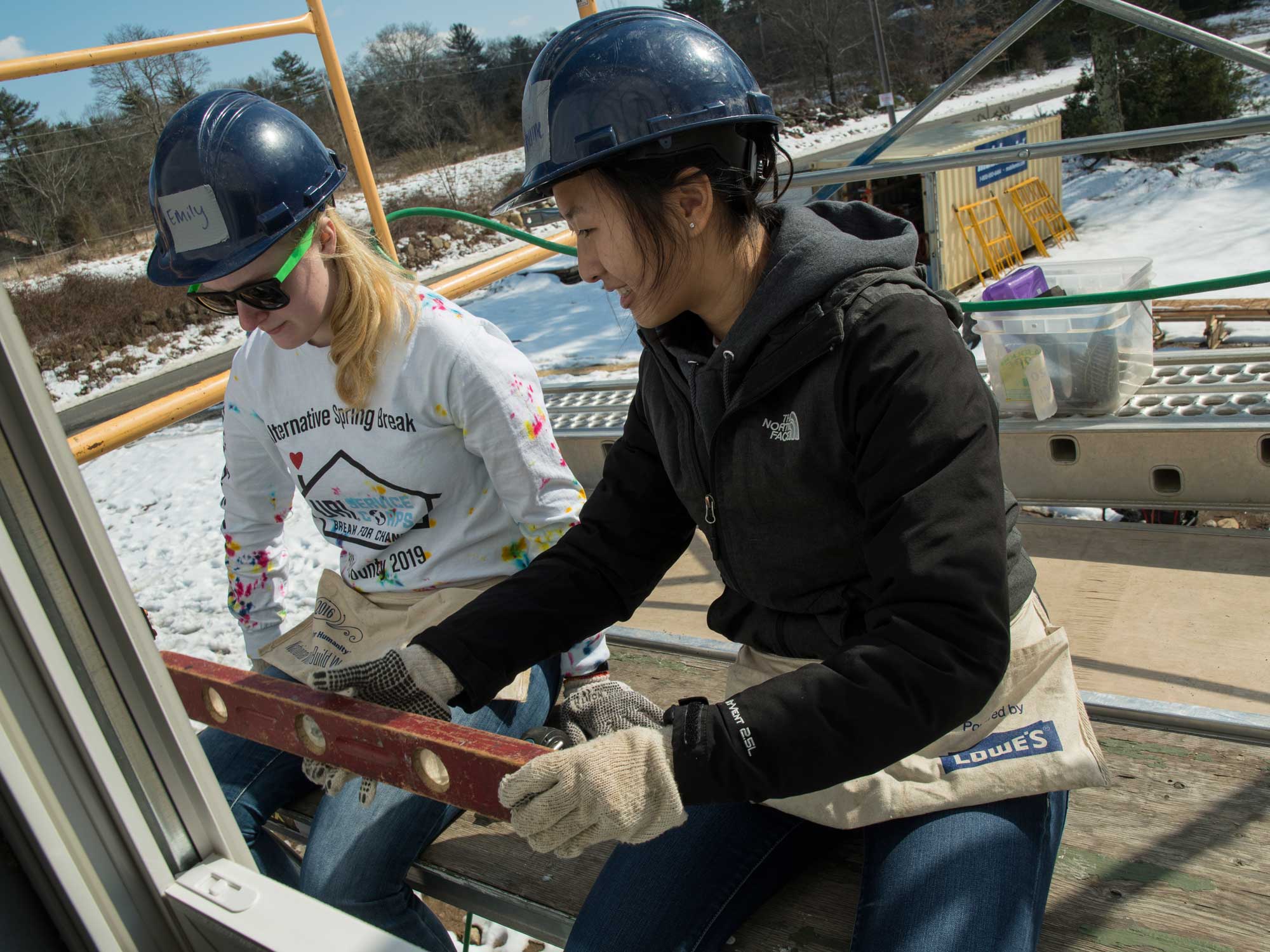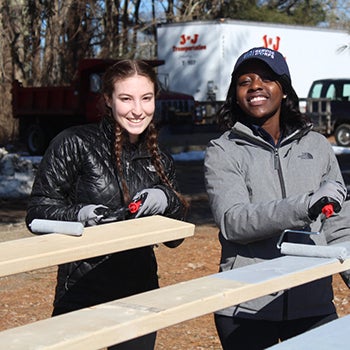
URI students are using their spring break to build houses—and, in the process, communities, too.
Each year, URI Service Corps, a student-led, student-financed program sponsors Alternative Spring Break as an opportunity for students to participate in service-learning trips locally, nationally, or abroad. Trips are chosen for the issues the areas present, such as immigration injustice or lack of affordable housing.
Over the past several years URI Alternative Spring Break groups have worked on projects all over the country—and beyond—including Santa Fe, Atlanta, Houston, Northern California, San Juan, New Orleans, Denver, and Guatemala.
Here are the trips planned for spring 2021. Application deadline: October 15
- Milwaukee/Whitewater, Wisconsin—Focus: Affordable housing, food insecurity, and environmental education
- Tennessee—Focus: Public health and youth education
- Washington, D.C.—Focus: Environmental and social justice
- Vermont—Focus: Racial inequality, specifically in education. (for first-year students only)
- South County (R.I.) Habitat for Humanity—Focus: Serve local, think global
For more than 20 years, URI and South County Habitat for Humanity have worked together to address the state’s housing crisis. The outcomes of that partnership include a housing development, a half a million dollars raised, and ongoing rehab projects across southern Rhode Island. Students also benefit from equally significant but unquantifiable gains: skills honed, friendships made, and the satisfaction of serving one’s community.
“It’s an affordable service immersion program right in students’ backyard,” said Amy Albert, community engagement coordinator at the URI Center for Career and Experiential Learning, who advises URI Service Corps. “Students often end up volunteering for Habitat for Humanity long after their week-long experience.”
The experience also affords students the opportunity to reflect on issues such as power and privilege—as well as ways they can use their talents and skills to change things. “Students can share, learn, and leverage their servant leadership skills,” Albert says.

